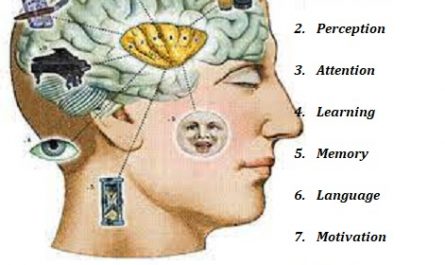Breast cancer
Breast cancer is a type of cancer that develops in the cells of the breast. It is the most common type of cancer among women worldwide, and can also occur in men. The main symptoms of breast cancer include a lump or thickening in the breast or armpit, changes in the size or shape of the breast, and discharge from the nipple. Other symptoms can include breast pain or skin changes in the breast area.
There are several types of breast cancer,
- Including invasive ductal carcinoma,
- Invasive lobular carcinoma,
- Ductal carcinoma in situ.
Treatment for breast cancer may include surgery, radiation therapy, chemotherapy, and hormone therapy. The specific treatment plan will depend on the stage of cancer, the size and location of the tumor, and the patient’s overall health. Early detection and diagnosis are key in improving the chances of survival. Regular breast self-exams, clinical breast exams, and mammograms are all important in detecting breast cancer in its early stages.
Impact of breast cancer
Breast cancer can have a significant impact on the physical, emotional, and social well-being of those affected. The physical effects of breast cancer can include surgery, radiation therapy, and chemotherapy, which can lead to pain, scarring, and changes in physical appearance. These treatments can also cause side effects such as fatigue, hair loss, and changes in skin and nail appearance.
Emotionally, a breast cancer diagnosis can be overwhelming and stressful. Patients may experience anxiety, depression, fear, feelings of loss, and uncertainty about their future. They may also feel a sense of isolation and a lack of control over their lives.
Breast cancer can also have a significant impact on the social lives of patients. Treatment schedules can be demanding and may require patients to take time off work or reduce their working hours. This can lead to financial and career-related challenges. Breast cancer can also affect relationships, as patients may need support from family and friends during treatment.
Additionally, breast cancer can also have long-term effects on the patient’s well-being, such as lymphedema, chronic pain, and psychological distress, even after the treatment is over.
It is important for breast cancer patients to have access to a multidisciplinary team of healthcare professionals including oncologists, surgeons, radiation therapists, psychologists, social workers, and nurses to address their physical and emotional needs during and after the treatment.
Breast cancer and Mental health
Breast cancer and its treatment can have a significant impact on mental health. The diagnosis and treatment of breast cancer can be a traumatic and stressful experience, and patients may experience a wide range of emotional and psychological reactions.
Some common psychological issues that breast cancer patients may face include:
Anxiety: Many patients may experience anxiety about their diagnosis and treatment, as well as fears about the future and the possibility of recurrence.
Depression: Patients may also experience feelings of sadness, hopelessness, and loss of interest in activities they used to enjoy.
Stress: Cancer diagnosis and treatment can be a very stressful experience, which may cause patients to experience feelings of anger, irritability, and difficulty sleeping.
Body image concerns: Breast cancer treatment can lead to changes in physical appearances, such as scarring, loss of breast tissue, and changes in skin and nail appearance, which can affect patients’ self-esteem and body image.
Sexual concerns: Breast cancer treatment can also affect sexual function, which can lead to sexual dysfunction and relationship difficulties.
Grief and Loss: A breast cancer diagnosis can be a significant loss, and patients may experience grief and mourning over the loss of their breasts and their sense of self.
These psychological problems can have a significant impact on the quality of life of breast cancer patients and their loved ones. It is important for breast cancer patients to be aware of the potential mental health effects of their diagnosis and treatment, and to seek support if they are experiencing emotional or psychological difficulties. This support can come from a variety of sources, such as family and friends, support groups, and mental health professionals.
It’s also important to note that not all patients will experience the same mental health problems, some might have a better coping mechanism, and others may have a pre-existing mental health condition that may be exacerbated by the diagnosis and treatment.
Psychotherapy and counseling for breast cancer patient
Psychotherapy and counseling can be an important part of the treatment for breast cancer patients. These therapies can help patients cope with the emotional and psychological effects of their diagnosis and treatment.
Cognitive Behavioral Therapy (CBT) is a type of psychotherapy that can help patients manage anxiety and depression by identifying and changing negative thought patterns.
Interpersonal therapy (IPT) is another form of psychotherapy that can help patients with mood disorders, such as depression and anxiety, by addressing relationship issues that may be contributing to their emotional distress.
Group therapy can also be beneficial for breast cancer patients, as it allows them to connect with others who are going through similar experiences. Support groups can provide patients with a sense of community and a safe space to share their feelings and concerns.
Counseling can also be beneficial for breast cancer patients, as it can help them cope with the physical, emotional, and social changes that can occur as a result of their diagnosis and treatment. Counselors can provide patients with emotional support, practical advice, and guidance on how to manage the impact of breast cancer on their lives.
It is important to note that these forms of therapy can be provided in different settings, and it’s important to find a therapist or counselor that the patient feels comfortable. In addition, it’s essential to keep the therapist or counselor informed about the patient’s physical condition and treatment schedule as it may impact their ability to attend therapy sessions.




